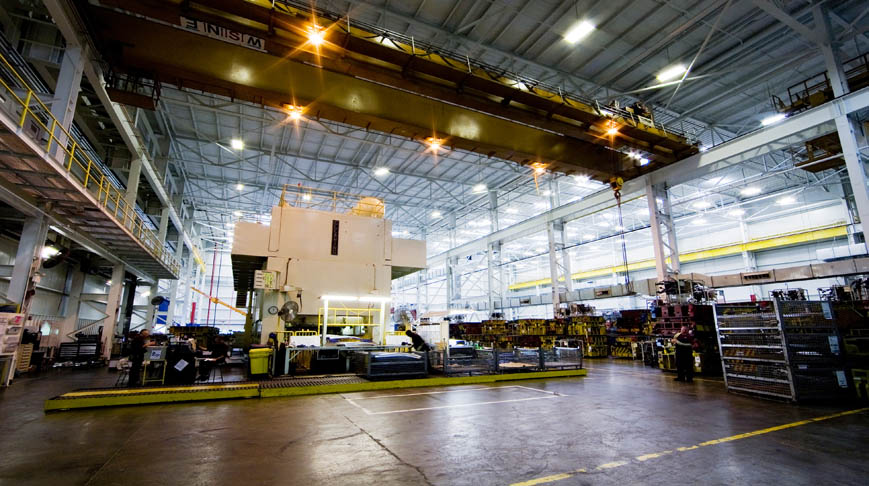Uber in Birmingham does not mean rehashing old regulations, supporters say

Birmingham insists they want Uber, but the road is not yet fully clear for the popular ridesharing service. Despite assurances from the Birmingham City Council that Uber is welcome, demonstrated in the city’s latest video update, requirements the company must first meet all “safety regulations” could become a roadblock to Uber’s expansion in Birmingham. As outlined in a document to the city’s legal department, obtained by ALToday.com, Uber’s primary concerns include outdated insurance requirements, redundant background checks and excessive licensing and permitting in jurisdictions that regulate “Transportation Network Companies.” After last week’s Committee of the Whole meeting, Birmingham’s proposed regulations – required as a condition of operations in the city – are what Uber officials call a simple rehash of existing transportation codes passed in 2014. Those regulations continue to lump Uber in the same category as traditional taxi services. “The regulatory proposals we’ve seen thus far from City Officials neither reflect the ridesharing business model nor appear to be a serious attempt to bring this option to Birmingham,” an Uber representative told Alabama Today. “We’ve shared our position on three issues that we must come to an agreement on before we’re able to offer ridesharing in the Magic City.” At issue are several sections in latest draft, which reference the 2014 codes. For example, as noted on the second page of the draft, “Vehicles operating under the auspices of a Transportation Network Company will be treated as taxicabs for the purpose of determining all licenses and fees required under this Code.” That passage is directly at odds with Uber’s three central priorities, which they say must be addressed before the company (as well as rival Lyft) can provide convenient and affordable transportation to Birmingham residents. Coincidentally, the same three issues – licensing, background checks and insurance – are top concerns laid out by City Council President Jonathan Austin this summer. For other municipalities that passed pro-ridesharing regulations, including Mobile, allows a TNC to apply for a “master license” from the city. This permits drivers to be registered with Uber, not individually and separately with the city. Such rules supports Uber driver/partners, who see flexibility in hours as the most appealing feature of a ridesharing career. According to estimates, 50 percent of all Uber drivers in the United States average less than 10 hours per week on the road. Eighty-seven percent say that “being their own boss” is a significant factor in their decision to work with Uber. Requiring individual licensing would, in effect, have a chilling effect on attracting quality drivers. As for insurance, since most Uber drivers use their vehicles for personal business and not ridesharing, a majority of vehicle use is already covered under the drivers existing personal auto policy. Uber offers a contingent insurance policy – exceeding the state’s personal insurance minimum requirements – which protects drivers while they are active in the system, but not yet picked up a rider. Another obstacle preventing Uber’s full participation in the city of Birmingham is a proposed requirement for background checks, which supporters say is an unnecessary duplication of effort. All driver/partners seeking to be included in the Uber platform are already required to undergo an extensive background checks performed for the company by an accredited third party. Uber screens include Social Security tracing, a seven-year history of addresses associated with the potential driver’s name, and a criminal background check through national, state and local databases. Vendors crosscheck all driver-partners against the National Sex Offender Registry as well as public registries maintained at the state level, to screen for disqualifying offenses. Also, background checks include pulling the applicant’s Motor Vehicle Registration file. Uber and other ride sharing services believe unnecessary layers of city-sponsored bureaucracy only further hinders participation, shrinking the available pool of qualified drivers. Accepting Uber into Birmingham, the spokesperson says, requires more than a rehash of outdated existing regulations. “We hope that Birmingham follows in the footsteps of more than 60 U.S. jurisdictions that have passed pro-innovation ridesharing regulations, and supported the subsequent economic opportunity and safe transportation options that their residents deserve.”
Alabama House delays bill to block cities from raising minimum wage

The Alabama House of Representatives has delayed a vote on a bill that would prohibit cities from raising the minimum wage. The proposal sparked heated debate Monday night on the House floor. Mountain Brook Republican Rep. David Faulkner says the state shouldn’t have a patchwork of minimum wages. He says he believes raising the minimum wage would cause businesses to move, close or not hire. The proposal sparked harsh criticism from Democrats. Rep. Chris England of Tuscaloosa says local governments can make the determination if a wage increase is needed in their areas. England argued that no one can live, or raise a family, on the current minimum wage of $7.25-an-hour. The bill was introduced after the Birmingham City Council voted to raise that city’s minimum wage to $10.10-per-hour. Republished with permission of the Associated Press.
Birmingham auto supplier looking to add 120 jobs

Birmingham auto parts supplier Kamtek has announced a plan to expand its operations in the city with a new, $80 million manufacturing facility that Kamtek says will create an estimated 120 jobs. Al.com reports that the proposed 148,000-square-foot Pinson Valley facility would produce aluminum automotive casting parts for major auto manufacturers. The Birmingham City Council‘s budget and finance and economic development committees discussed the resolution on Monday. Al.com reports that officials plan to recommend that the full council pass the resolution on Tuesday. Company officials say they hope to choose a developer within two weeks and complete construction by July 1, 2016 before beginning production in 2017. Since 2008, Kamtek, a division of Magna International, has invested more than $470 million in its current operations. The company employs more than 900 people. Republished with permission of the Associated Press.


